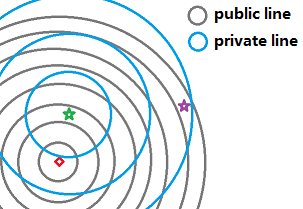2014/04/20
refutations of two Oxford philosophers
Recently I came across two treatises by Oxford philosophers belonging to the transhumanist milieu (e.g. Humanity+, Future of Humanity Institute). Both works are interesting in the incorporation of higher-level scientific and technological arguments into a field that, with the passing of time, increasingly sits in general neglect at the lowest level of thought much below which scientific inquiry and technological progress now take place. Transhumanism, whatever its actual content, at least updates philosophy to be relevant in the modern context.
The works, one by David Pearce on the Hedonistic Imperative and one by Nick Bostrom on the Simulation Argument are quite provocative and engaging to read. They will be briefly summarized and refuted in the sequel.
(Read the article)
 Michael Lewis has been in the news for his new book,
Michael Lewis has been in the news for his new book, 